Assessing the real cost of egress charges
By Alex Hawkes|4 December, 2023
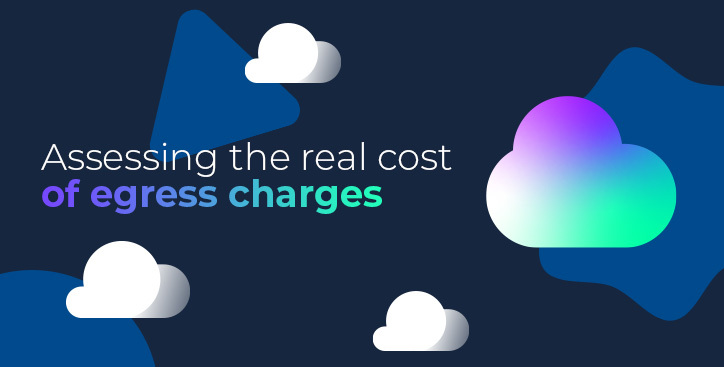
Console Connect recently hosted a live webinar called ‘Assessing the Real Cost of Egress’ that discussed the findings of a new research paper which identified an egress fee breakeven point for businesses who switch to a private network solution.
The research study, entitled ‘A Business Case for Internet-Bypass Solutions in 2023’ authored by William B. Norton, an internationally recognised expert on internet peering, identified an ‘internet-bypass breakeven point’ that determined the cost benefits for businesses who adopted a private network solution if they were exchanging roughly 25Mbps (megabit-per-second) or more cloud traffic per month.
The webinar was attended by Norton, Darren Mott, a former FBI supervisory special agent and host of The CyBUr Guy Podcast, and Jay Turner, Vice President of Development and Operations of Console Connect, who together discussed the research findings and the wider topic of network security.
The webinar opened with Norton addressing the cost implications of transferring data between cloud providers and remote data centres using the public internet, shedding light on the pricing structures of major cloud providers, such as AWS, Google Cloud, and Microsoft Azure.
Norton outlined the need for more efficient, cost-effective alternatives to traditional internet transit and examined the potential advantages of direct connections to cloud providers, bypassing the public internet. “What I want to prove is that you can actually save money by having a private connection from your data centre or from a remote site to your cloud,” he said.
Comparing the costs of public and private network models
To prove his theory, Norton compared the cost components of both the public internet and private network models. For the public internet, he defined two cost components for businesses accessing resources over the public internet. The first is the internet service provider who charges a metered rate for the traffic that goes to and from the public Internet for accessing the cloud. The second cost component is the internet egress fee.
Egress fees refer to the metered fees that all major cloud providers charge for data that exits their cloud. These charges, often called ‘hidden fees’, have come under growing scrutiny from businesses stung by hefty and unexpected egress charges when they go to transfer data out of the cloud.
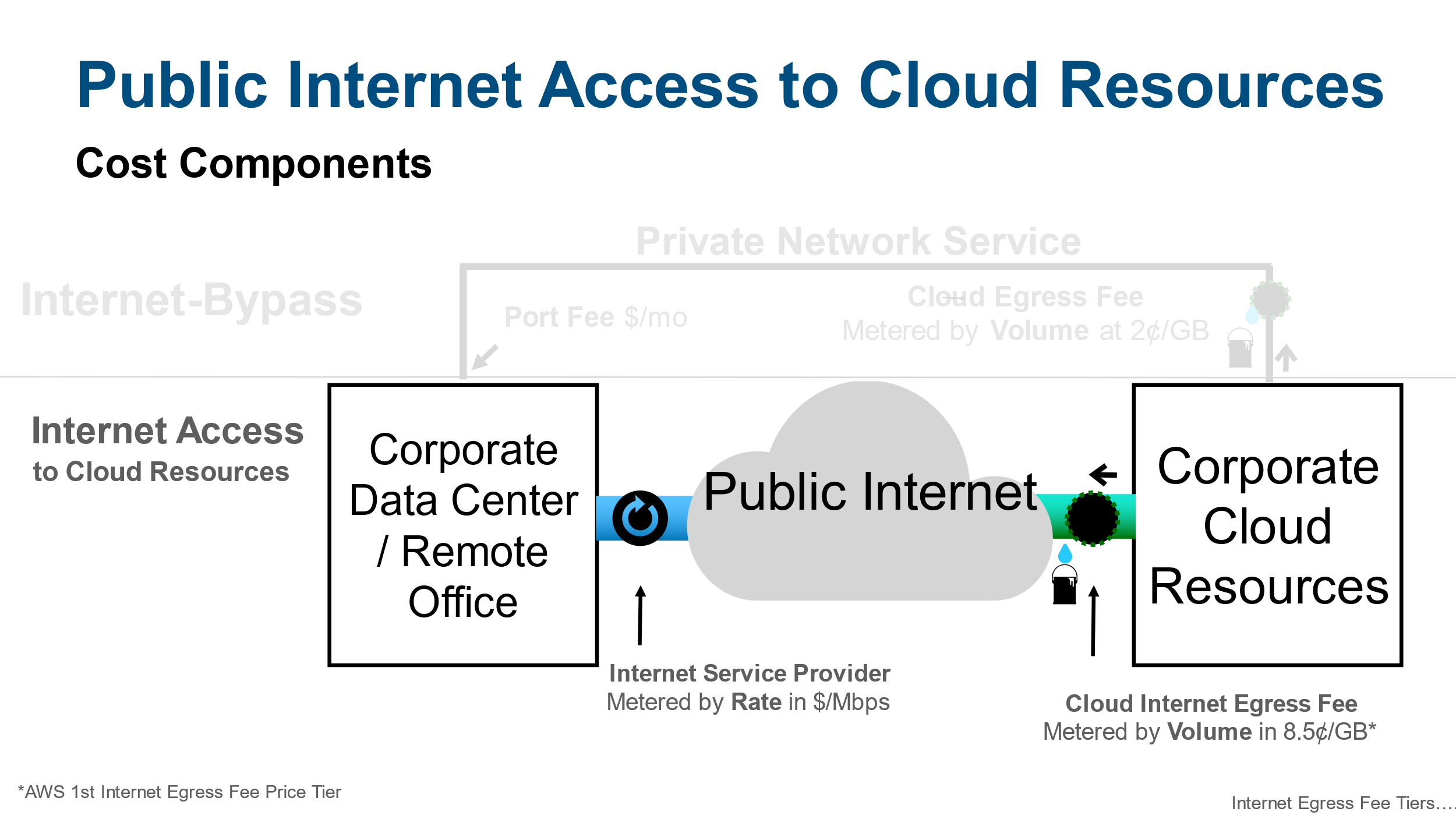 Public internet access to cloud resources
Public internet access to cloud resources
“Basically, you pay for every byte that exits out of your cloud,” Norton said. “Now, 8.5 cents per gigabyte might not seem expensive, but these costs can soon add up. For example, Apple paid $50 million in internet egress fees in 2017.”
Examining the pricing system of the public internet model, Norton explained how internet egress fees are ranked in tiers, whereby some clouds may offer a couple of gigabytes for free, and then beyond this, at 8.5 cents per gigabyte for the first 10 terabytes, and then maybe eight cents per gigabyte for the next 40 terabytes, and so on. 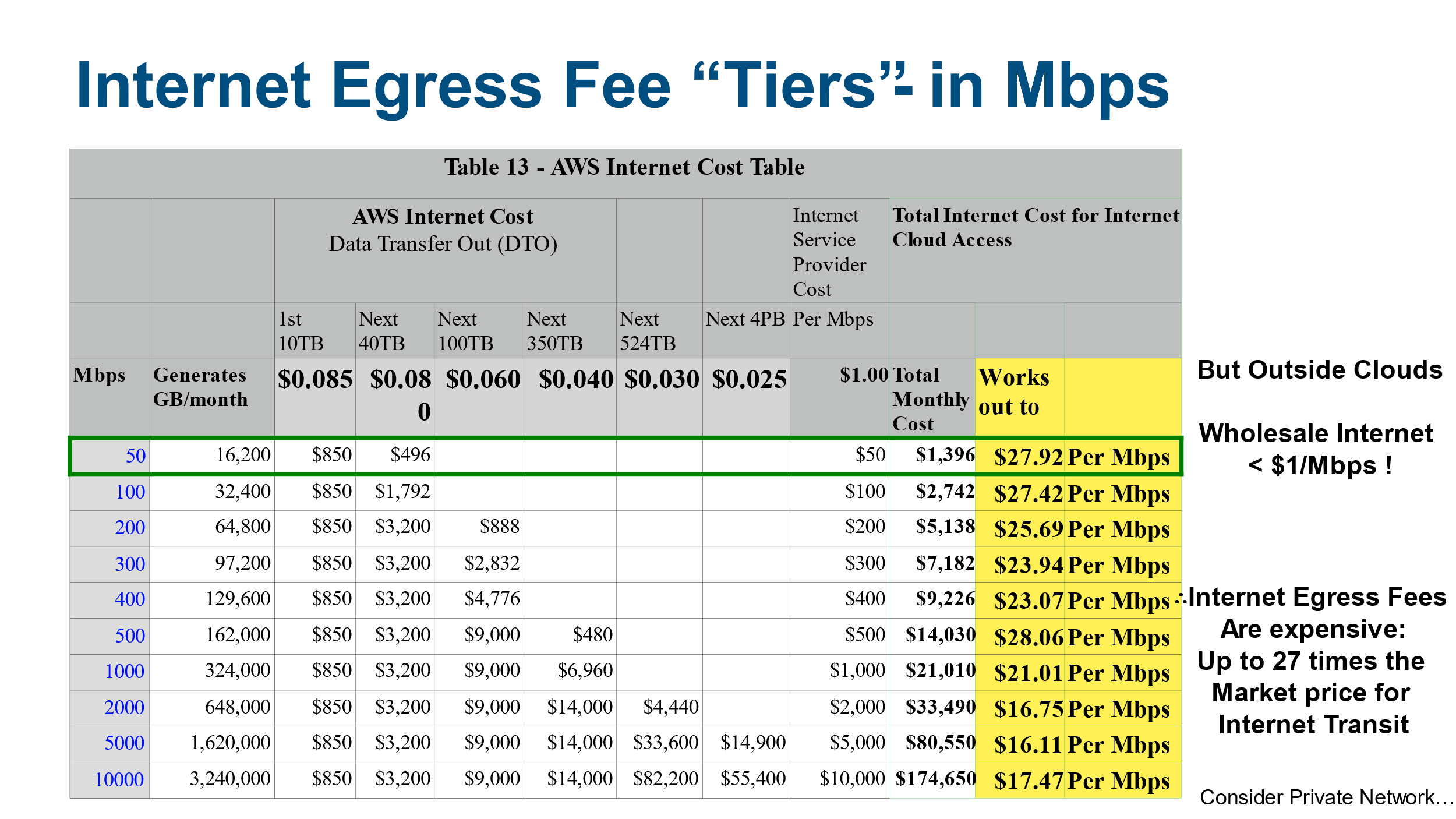
Internet egress fee tiers in Mbps
He then examined the private network model. “At first it looks the same where you have the corporate data centre and the cloud resources that you're trying to access and control, but this time you have the internet-bypass solution of a private network service linking the two,” Norton said.
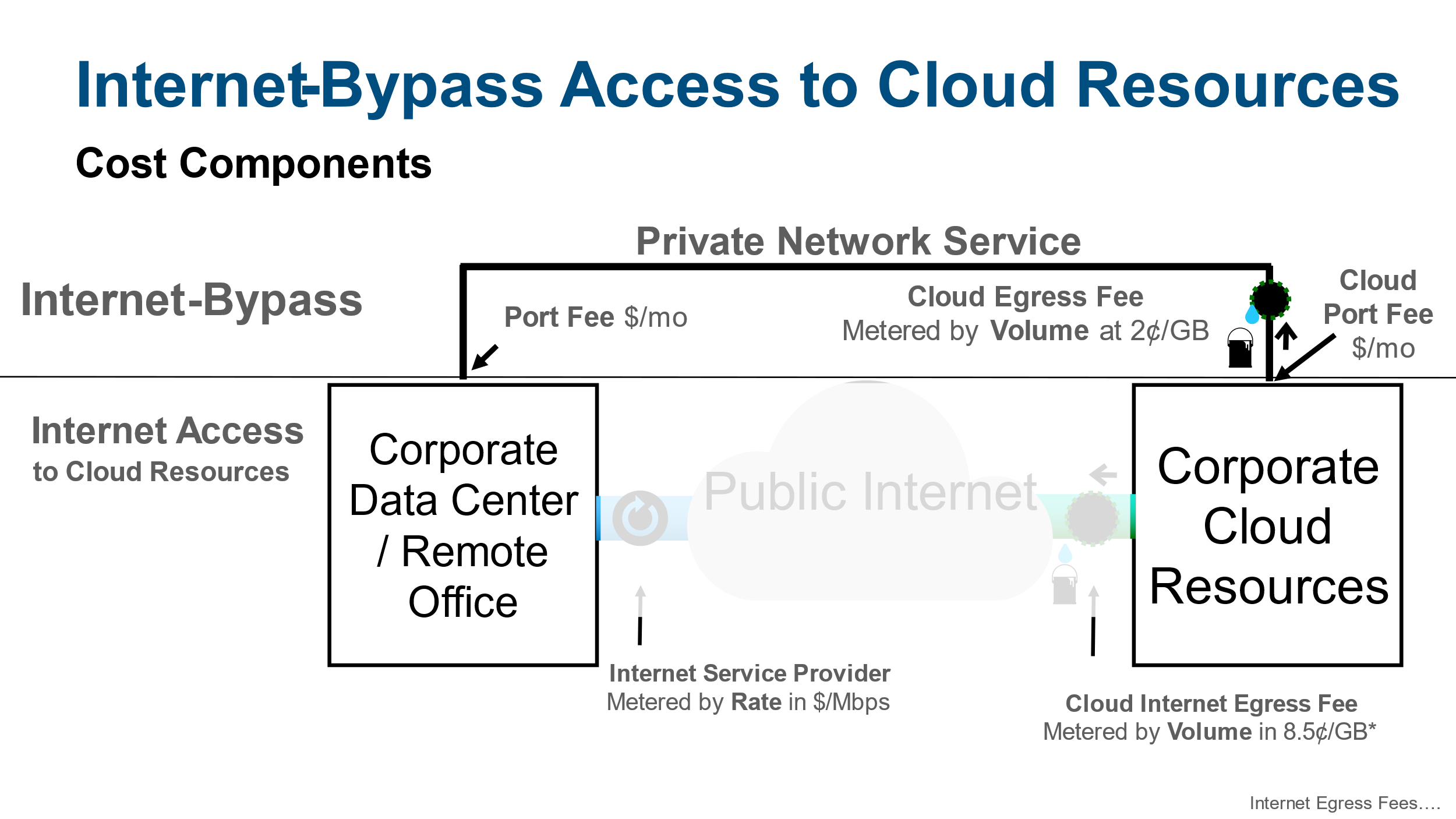 Private network access to cloud resources
Private network access to cloud resources
Next, he defined the three key price components of the private network model. The first is the port fee that the private network provider charges (typically there is a port fee and a VLAN fee, but these have been merged for simplicity). The second is the port fee that clouds charge on their side for direct access into their cloud. The third price component is the metered rate. “But now it is less than 8.5 cents per gigabyte,” Norton said. “Generally, you'll pay two cents per gigabyte for all traffic that exits your corporate cloud presence.”
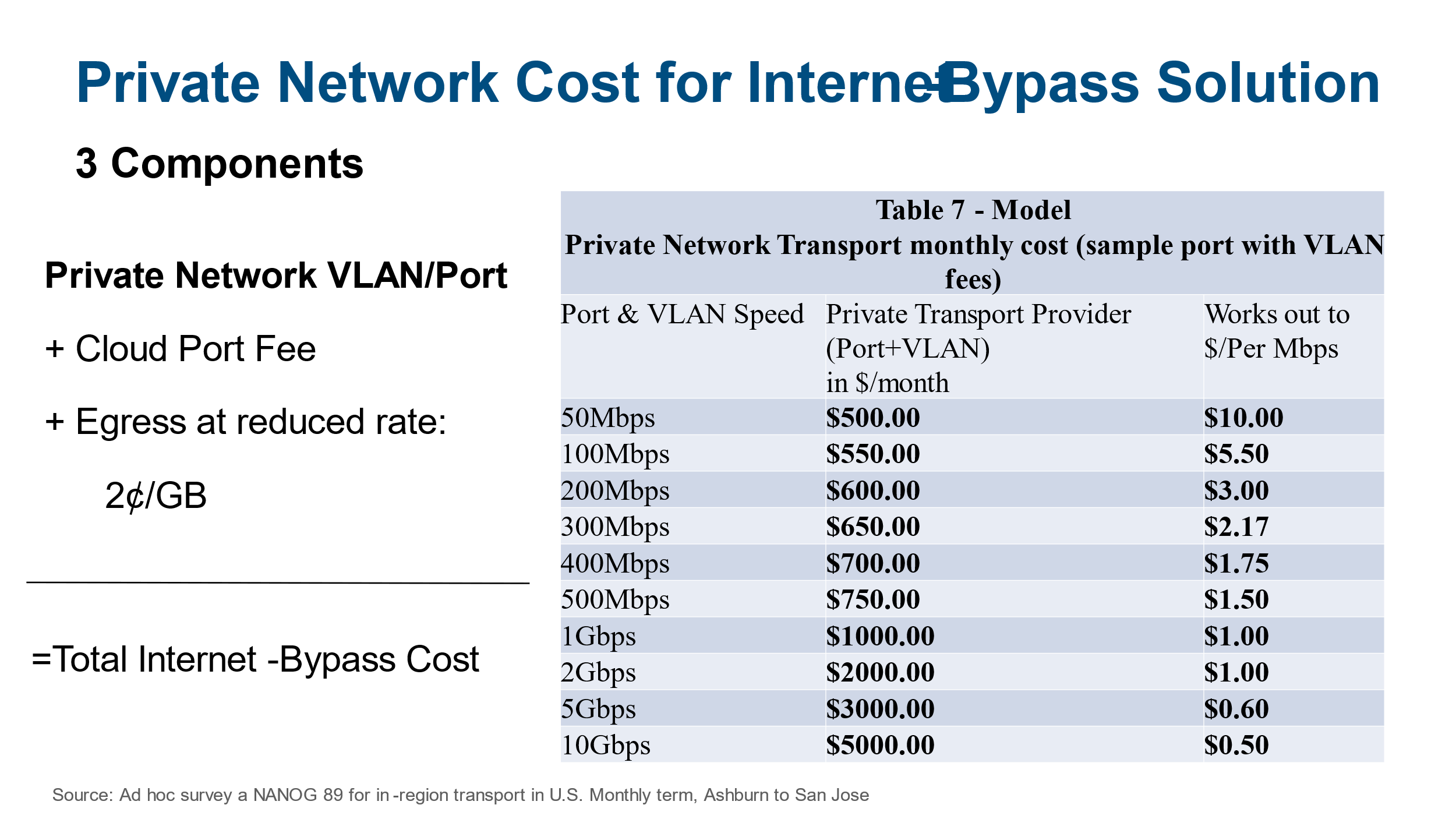 Cost components of private network access
Cost components of private network access
Testing the case study in the real world
To compare his cost component models with real world numbers, Norton asked several private network providers for their representative prices for private network ports and VLANs to the clouds. These price points were then rounded up to illustrate what the actual cost would look like for businesses privately accessing their cloud resources.
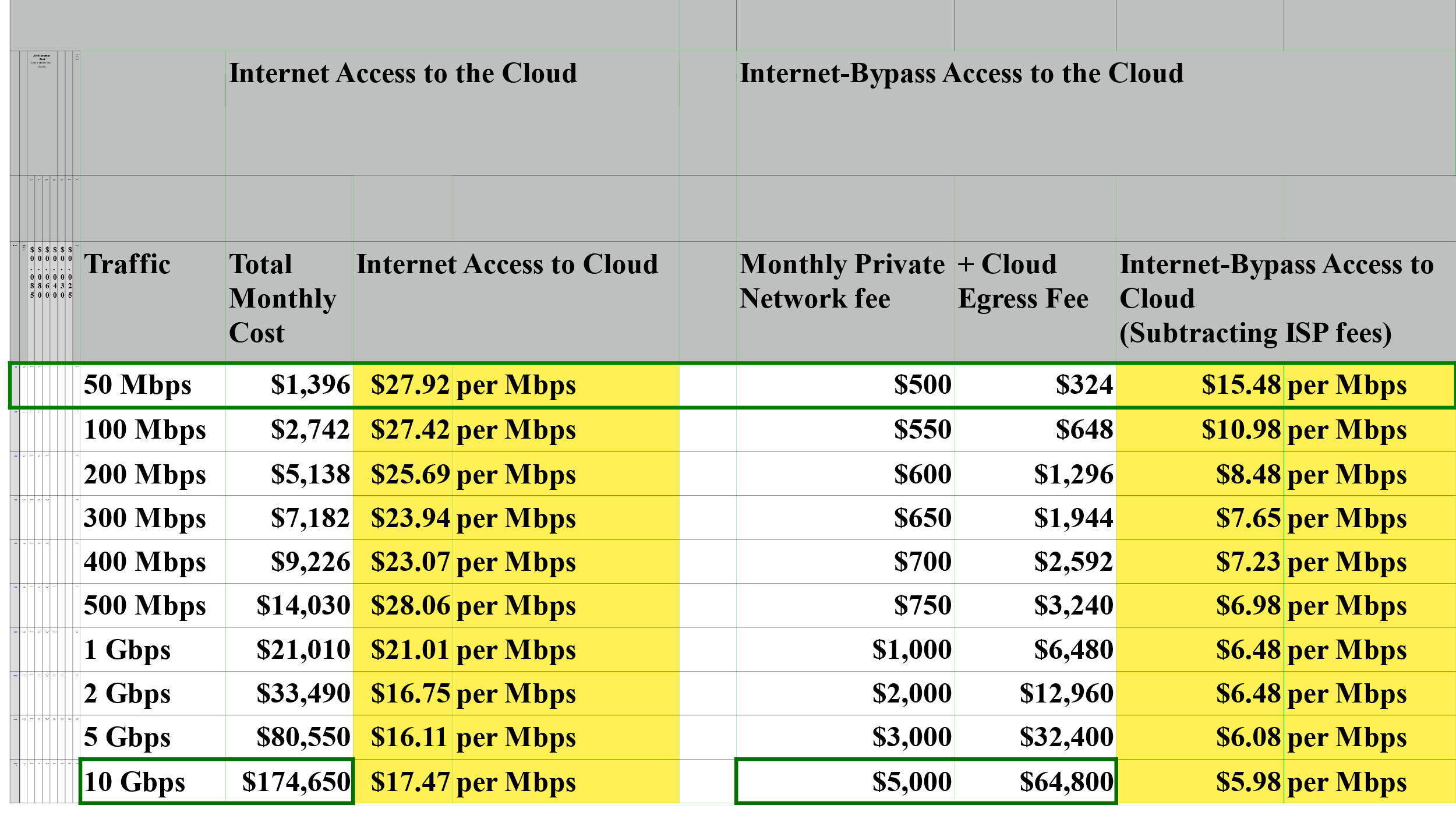 Real market price comparisons for public and private access
Real market price comparisons for public and private access
His subsequent spreadsheet showcased the real cost of accessing cloud resources over the public internet against sending the same traffic over a private network – with startling results. “Interestingly, we see that across all port sizes, at full use, the private network cost is at least 40% cheaper than sending the same traffic over the public internet,” Norton stated.
“Firstly, consider the 50Mbps row where the public internet access cost works out to $27.92/Mbps compared with $15.48/Mbps for the private network solution. Secondly, at the 10 gigabit per second amount of traffic, the cost savings is over $100,000 per month by using direct connection instead of the public internet. That’s huge.”
Summarising his research, Norton identified the breakeven point for businesses looking for an internet bypass solution to occur at approximately the 25Mbps mark for each of the three major cloud providers.
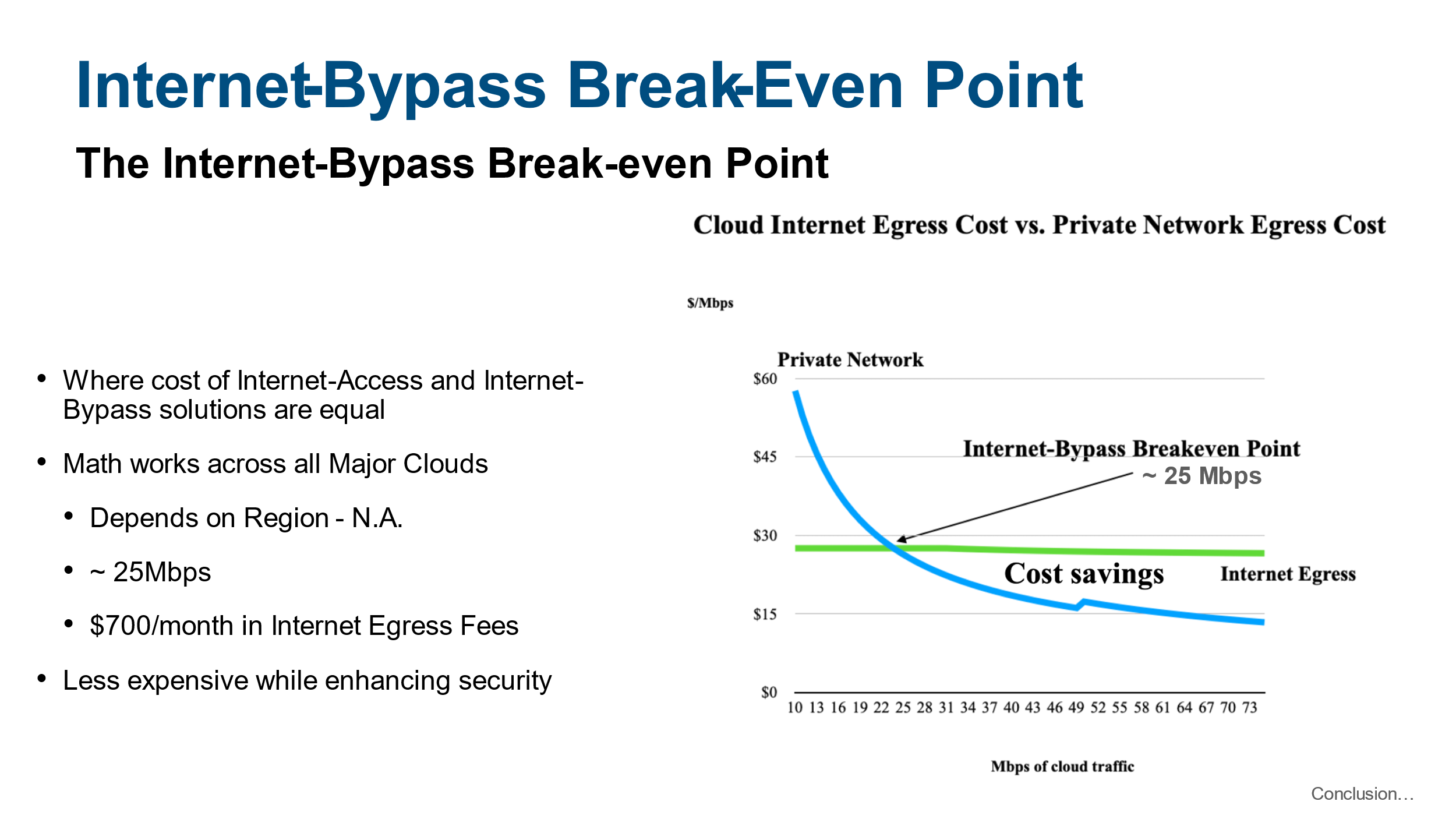 The internet bypass breakeven point across the three major clouds
The internet bypass breakeven point across the three major clouds
“Essentially, if your company is exchanging more than 25Mbps with your cloud presences, or in price terms, spending more than $700 per month on internet egress fees, then you ought to look at using a private network because it will actually save you money,” he concluded.
The security benefits of a private network
Following Norton, former FBI supervisory special agent Darren Mott explained to webinar viewers how businesses can greatly reduce their cyber risk by adopting a private network solution.
“At the end of the day, cyber attackers are trying to find your information and they don't care where it's located – at your corporate centre, in the cloud, or somewhere else – and they will probably overwhelm your network defenders to get to that information,” he said.
By pivoting to a private network, Mott said businesses could protect themselves against these cyber threats because a private connection prevents attackers from conducting large scale assaults in between their corporate network and their cloud infrastructure.
“A private connection will also improve your network performance in that you will have less latency, less jitter, and a more stable connection, so it's very hard for malicious actors to exploit your network,” Mott added. “It will further increase your data privacy between your data sources, which makes it very hard for the bad guys to get access to that information while in transit. Additionally, using a private connection can aid compliance issues of your data passing through jurisdictions or networks that might not adhere to the same stringent standards as your own.”
The business case for Software Defined Cloud Interconnects
The economic advantages outlined in the webinar, coupled with the security advantages, highlight the added value of switching to a private network connection to the cloud.
In recent years, the emergence of Software Defined Cloud Interconnects has significantly lowered the barriers of adoption for enterprises.
Compared to connectivity offerings from cloud providers and data centre providers, which are restricted to a specific cloud provider or data centre ecosystem, SDCIs provider greater flexibility with cloud networking.
Using an SDCI, businesses can privately connect multiple cloud providers in multiple locations – giving them full end-to-end management and control over their cloud networking.
“For companies using Console Connect, it allows them to really control their own destiny in terms of business growth,” said Jay Turner, Vice President of Development and Operations of Console Connect. “They want to be safe and agile; they want to be able to pay as they go; and they want service provisioning according to their business needs. Our self-service platform gives them all these benefits on their own terms.”
As well as reducing egress charges, SDCIs can deliver further cost savings by allowing companies to be more efficient with their network resources. Businesses can dynamically allocate bandwidth and adjust network capacity as needed.
The webinar concluded with Turner emphasizing another unique benefit of a private network solution – total control. “It’s all about the user being able to control their assets,” he said. “At Console Connect, we have made it very easy for businesses to make their own decisions on how their private network connection is provisioned and utilised. That way, they don’t have to pay for wasted resources.”

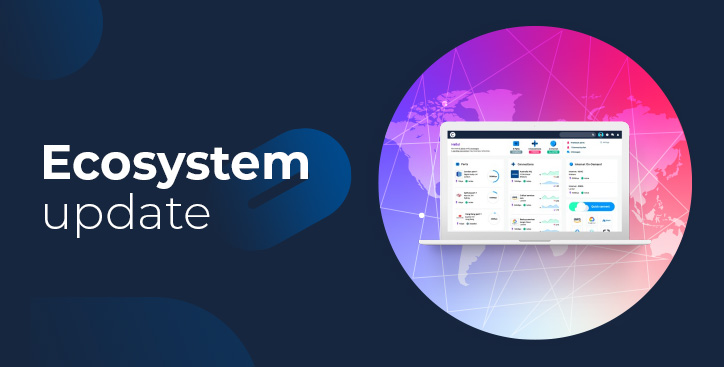
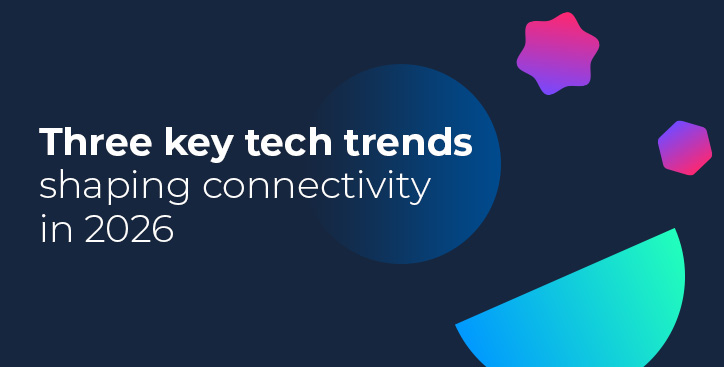

.jpg)
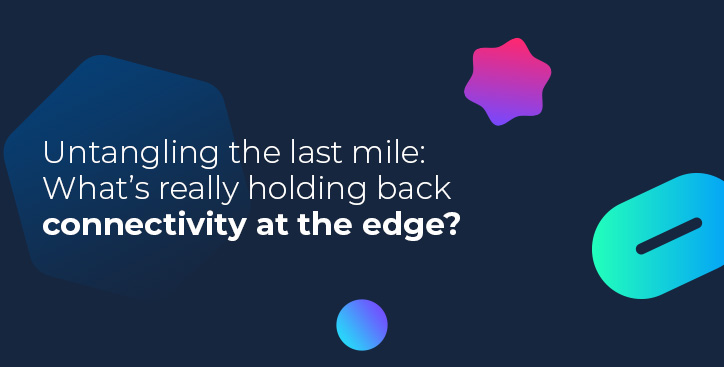
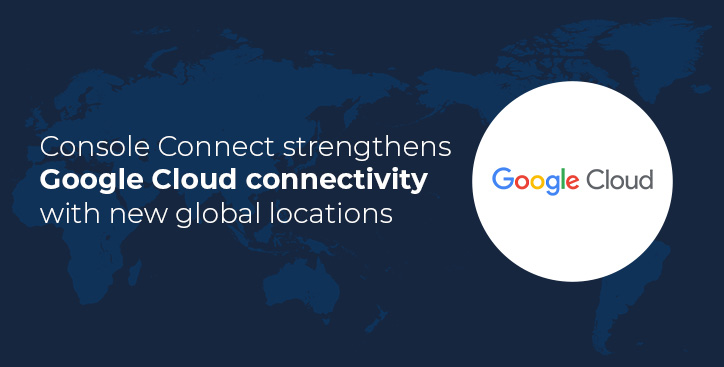
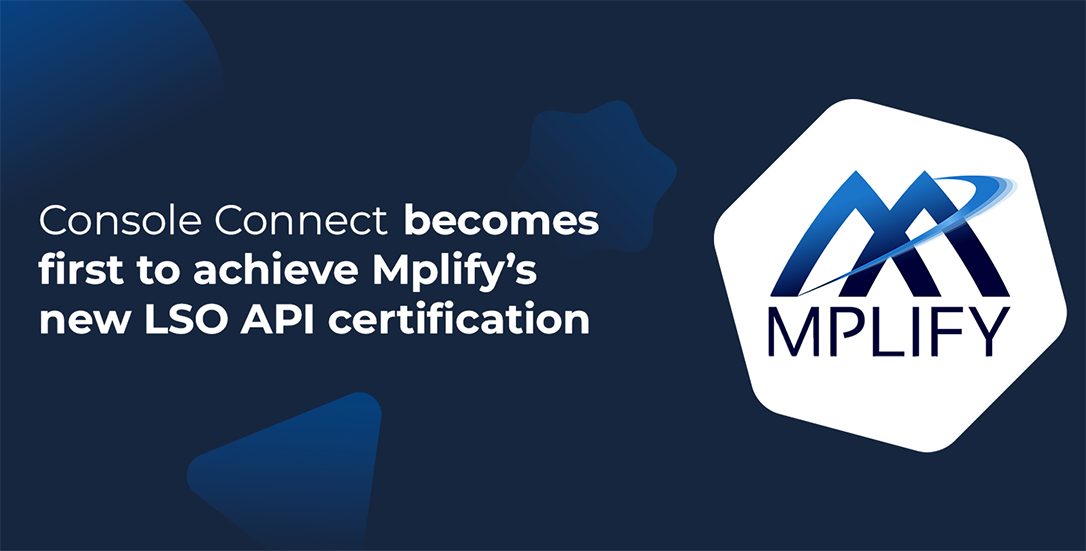
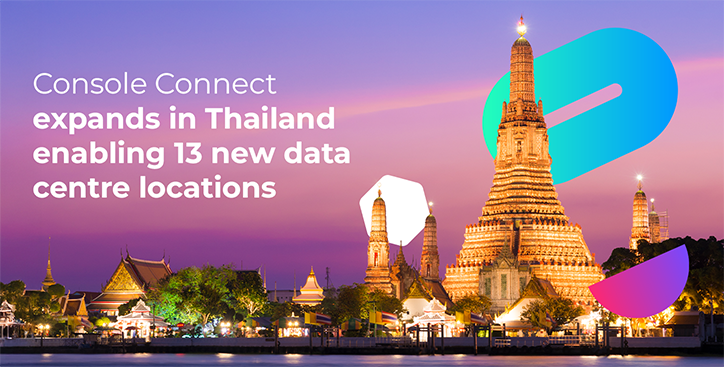
.jpg)